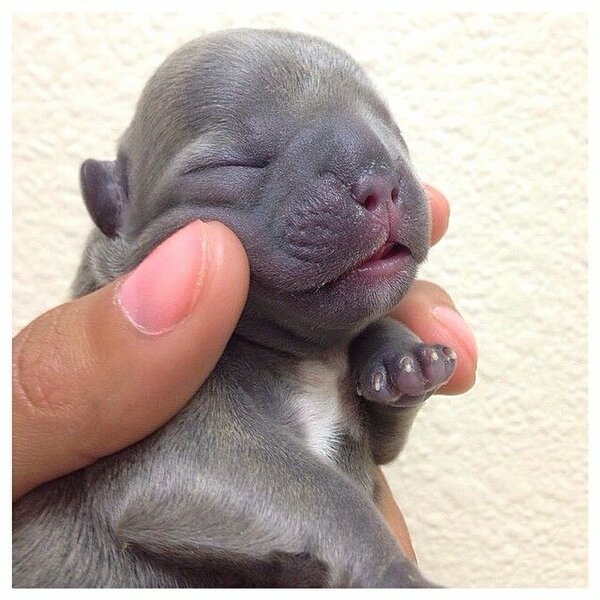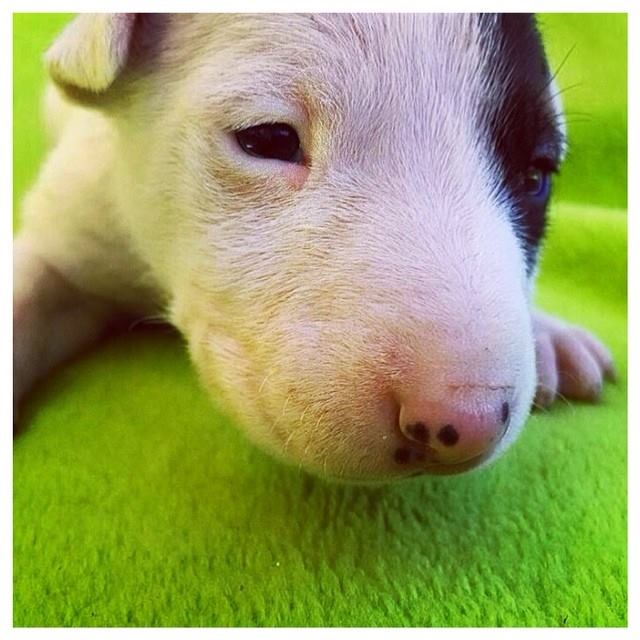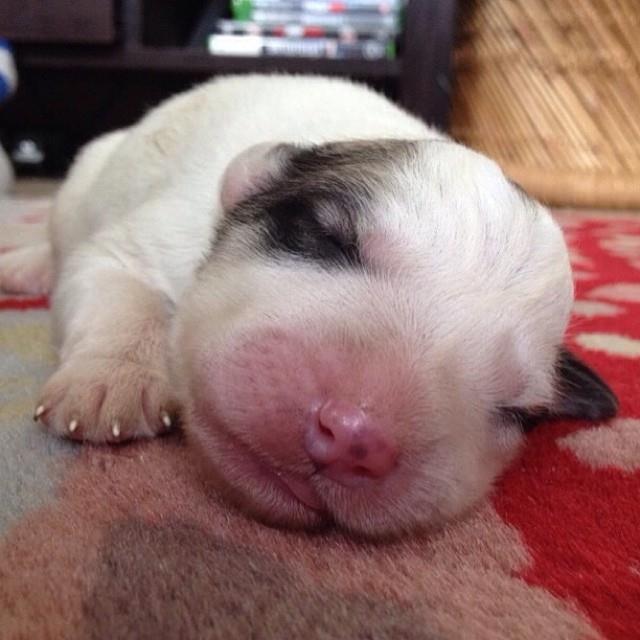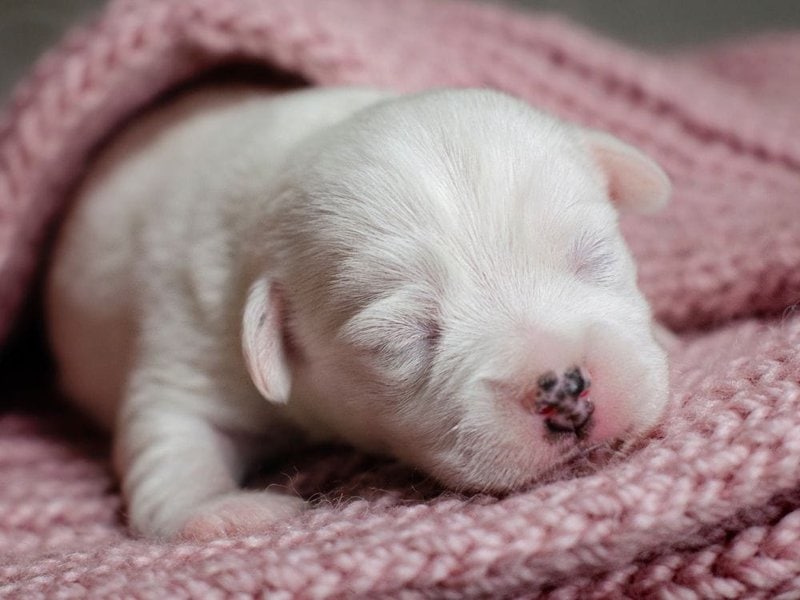Do you have a new puppy at home? If so, you’re probably curious about when their eyes will open. It can be an exciting process to watch as your little one starts to explore the world around them.
Newborn puppies open their eyes when they are 10 to 14 days old. This is because puppies are born with their optic nerves not fully developed. This makes a newborn puppy’s eyes very vulnerable to injury and sensitive to light. So, it takes 10 to 14 days for a newborn puppy’s optic nerves development to complete, for their eyes to be able to open.
At first, they can only see well enough to make out blurry shapes. But their vision improves rapidly during the next two weeks, and by the time they’re four weeks old, they can see as well as an adult dog.
We’ll talk about when and how puppy eyes open, as well as some common problems that can occur. We’ll also give you some tips on how to care for your pup’s eyes during those first few weeks. Keep reading for more information!
When Does Your Puppy Start Opening Its Eyes?
Many people think that the moment the little pups open their eyes the gestation period is over or they can see. The little pups will open their eyes one or two weeks after they are born.
At this point, all they can see is blurred movements and light, nothing beyond that.
Their sight will improve slowly, week by week. The most notable progress is after four or five weeks. But for fully developed eyesight, the pup needs to be at least seven weeks old.
Why Are Puppies Born Deaf And Blind?

Unlike humans, cows, and other mammals, dogs are born in a helpless state – deaf and blind. They are only left with the sense of touch and scent. Thanks to them they can find their way to their mother.
The answer to why puppies are born at a stage in which they are entirely helpless takes us back in time. Way back when species had to make a reproduction strategy that will give them the best chances for survival. For mammals, the choice was whether to have a long pregnancy and have functional offspring, or a shorter one in which the offspring was partly formed and needed much care.
Dogs’ predecessors, the wolves, have a short pregnancy strategy. This means that the mother gives birth to her young and then immediately leaves them to go hunting. While she is gone, the young ones stay hidden in a den. They are not likely to wander very far away, which increases their chances of survival.
Things To Watch Out For
The first few weeks are the most critical ones for newborn puppies. Far more critical than with many other mammals. In the first few weeks after their birth, they are most vulnerable to infections. Even though their eyes and ears are not fully developed, those are the areas that are most prone to infections.
Regardless of the fact that the pup hasn’t opened its eyes, it doesn’t mean it cannot get an eye infection. A virus or a bacteria can create pus or swelling. An infection at this stage often affects the glands that are responsible for creating tears. The pup’s immune system is still in development, so it will have a rather difficult time dealing with the virus or bacteria.

However, that’s nothing a decent veterinarian cannot fix. It is important to consult with your local veterinarian as soon as you notice the condition. Worst case scenario, if the condition is left untreated, the pup will have vision problems and lifelong dry eyes.
An ear infection can cause some damage if it is not treated in the first six weeks. Ear cleaners and antibiotics are not helpful at this point and might even make the infection worse. If the young pup shakes its head or rubs its ears, it might have an ear infection. In some cases, there may be redness in the ear canal, and the pup’s ears may smell bad. In each case, a trip to the veterinarian is needed.
How To Care For Your Puppy?
The trick here is to make the mother as comfortable as possible and give her space and time to take care of the little ones. Let her deal with the little ones while you provide her with food, water, a quiet room, and a whelping box. You can also consider researching what types of puppy food that are the most suitable for your newborns.

It is for the best that during the gestation period have as little contact as possible with the little ones. If you notice a sign of an infection, you need to take one or more of them to the veterinarian. The idea is to let nature takes its course.
Final Thoughts
Little puppies might look super cute and all that, but they are also super fragile. It is super important to let the mother do all the carrying during the gestation period. Once that’s over they will be “out of the woods” and the fun can start.





